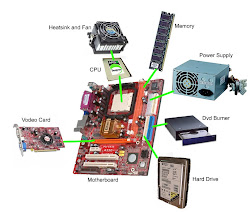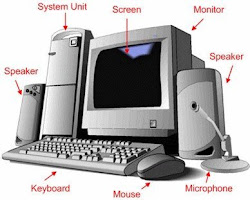
Today Intel is finally releasing new Core i7 models and speed bins to the market, as well as announcing a new flagship chip, the Core i7-975 Extreme Edition. Though it will definitely command a hefty price tag, at a stock clock speed of 3.33GHz and Intel Turbo Boost speeds at 3.45GHz (all cores) and 3.6GHz (single core), you can bet this new Core i7 is one hot-rod of a quad-core CPU. In the pages ahead, we’ll wind it out around the test track and show you what the fastest desktop processor on the planet can do when it’s tuned up for a touch more horsepower at the factory and made ready for production.
When you consider Intel's recent success at introducing new, cutting-edge processor architectures as of late, you can't help but appreciate the fact that the company is executing extremely well. The cold, hard fact of the matter is, even their last generation Core 2 architecture competes admirably with AMD's most recent update of the Phenom II, dollar for dollar and clock for clock. In fact, Intel's Core 2 architecture has done so well, that further roll-out of Intel's newer Core i7 line-up has been limited, no doubt in part because Intel doesn't absolutely need their fledgling new chip architecture to compete vigorously with their rival. There's no question, AMD's Phenom II is a solid alternative to the Core 2 but playing catch-up to Intel's legacy architecture is still not a very exciting position to be in, obviously.
Thus far there have been a mere three different models of Intel's new Core i7 processor that have been released to any channel, OEM or retail - the Core i7-920, Core i7-940 and the flagship Core i7-965 Extreme Edition. With clock speeds starting at 2.66GHz and scaling to 3.2GHz, Intel's new Core i7 proverbially lights up anything from AMD's high end line-up right now, even comparing the chip's slowest speed bin, never mind at like clock speeds. That said, the semiconductor business is pretty much a ruthless and relentless game of one-upsmanship; or in Intel's case currently, perhaps its two or three-up. As such, you can be sure Intel is looking for another kill shot, whenever they can.
Today Intel is finally releasing new Core i7 models and speed bins to the market, as well as announcing a new flagship chip, the Core i7-975 Extreme Edition. Though it will definitely command a hefty price tag, at a stock clock speed of 3.33GHz and Intel Turbo Boost speeds at 3.45GHz (all cores) and 3.6GHz (single core), you can bet this new Core i7 is one hot-rod of a quad-core CPU. In the pages ahead, we'll wind it out around the test track and show you what the fastest desktop processor on the planet can do when it's tuned up for a touch more horsepower at the factory and made ready for production.
Intel Core i7 975 Extreme Edition Processor
Subscribe to:
Post Comments (Atom)
Labels
- access database repair (2)
- access recovery (4)
- access repair (4)
- access repair software (3)
- access repair tool (1)
- AMD's Phenom II (1)
- Antivirus (1)
- Apple (2)
- Apple Mac OS X (2)
- Apple Mac OS X 10.6 (2)
- Apple Mac OS X Snow Leopard (2)
- ATI Radeon (1)
- Browser (1)
- Core (1)
- Core i7 (1)
- corrupted .mdb (1)
- Driver (1)
- Google (1)
- hardisk (1)
- IE8 (1)
- Intel (1)
- Java (1)
- Mac OS X (2)
- Malware (1)
- Marketing (1)
- mdb recovery (2)
- mdb repair (1)
- Meta Tags (1)
- Microsoft (1)
- PLC (1)
- processor (1)
- Quick Time (1)
- Quick Time X (1)
- QuickTime (1)
- QuickTime X (1)
- recover access database (1)
- Registry (2)
- repair access file (2)
- SEO (2)
- Snow Leopard (2)
- Spyware (1)
- SSD (1)
- virus (1)
- Vista (1)
- Website (1)
- windows 7 (9)
- windows 7 build 7264 (4)
- windows 7 download (8)
- windows 7 RTM (4)
- windows 7 rtm download (4)
- xp themes (1)
Technology (IT)
Information technology (IT), as defined by the Information Technology Association of America (ITAA), is "the study, design, development, implementation, support or management of computer-based information systems, particularly software applications and computer hardware.IT deals with the use of electronic computers and computer software to convert, store, protect, process, transmit, and securely retrieve information.
World Technology


Followers






0 comments:
Post a Comment